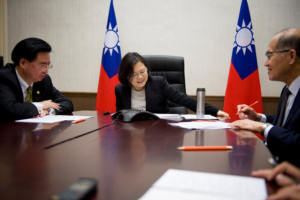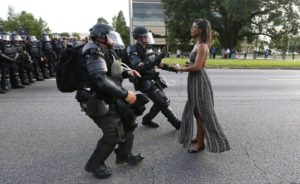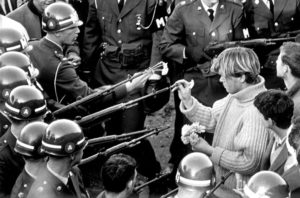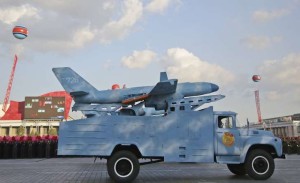Donald J. Trump has committed one of two egregious errors by conversing on the telephone with the leader of a country with which the United States has no diplomatic relations.
The president-elect either doesn’t know about the “one-China policy” to which the United States has adhered since the end of World War II, or he does know about it and decided to flout it willfully.
Trump spoke on the telephone this week with Taiwanese President Tsai Ing-wen. It was the first time a U.S. president-elect has spoken to the leader of Taiwan since the two countries severed diplomatic relations in 1979. The conversation has resulted in a formal complaint from the People’s Republic of China, which considers Taiwan to be a “renegade province” and has vowed to take it back, by force if necessary.
The PRC-Taiwan relationship is amazingly complicated. It also sits at the heart of U.S.-China relations, given that this country has entered into a defense pact to protect Taiwan in the event of an attack by the PRC.
So, the president-elect — who is still about seven weeks away from taking office — has decided to step into the middle of this mess. Either he made the call to Taipei or received a call from the island nation. Whichever happened, Trump shouldn’t have made the call, nor should he have received it.
And that brings me to my point. The man has made a serious error.
Trump’s ignorance about geopolitical relationships manifested itself repeatedly during the presidential campaign. He said it would be OK for Japan and South Korea to have nuclear weapons; he said the same thing about Saudi Arabia; he once said NATO nations should have to pay for U.S. protection in case Russia attacked the alliance; he has vowed to force Mexico to pay for the “beautiful wall” he intends to build along our southern border.
He was elected anyway.
The New York Times has done a good job of explaining the Taiwan-China controversy. Here’s the link to the Times’ explainer:
Trump has got to wrap his arms around a lot of nuanced relationships that involve the country he is about to govern and its myriad friends and foes around the globe. The PRC-Taiwan relationship is among the most sensitive, complicated and fragile any world leader can imagine.
Having been to Taiwan five times since 1989, I’ve developed a pretty good understanding of the country and its place in the world. It is a vibrant economic powerhouse. Its military machine is pretty stout, as well, thanks in large measure to the weapons it buys from the United States and other nations willing to sell to the Taiwanese.
More than six decades after the nationalist government fled the mainland to the island, most of Taiwan’s residents today were born on the island; many of them still have family on the mainland but they are Taiwanese first. Much has changed as Taiwan has evolved into a de facto independent nation.
One fundamental aspect, though, remains the same. China will not recognize Taiwan as an independent nation. Moreover, the United States maintains an embassy in China — and does not have one in Taiwan.
The president-elect needs to tread extra carefully here. The consequences of further mistakes are too grave to even contemplate.





